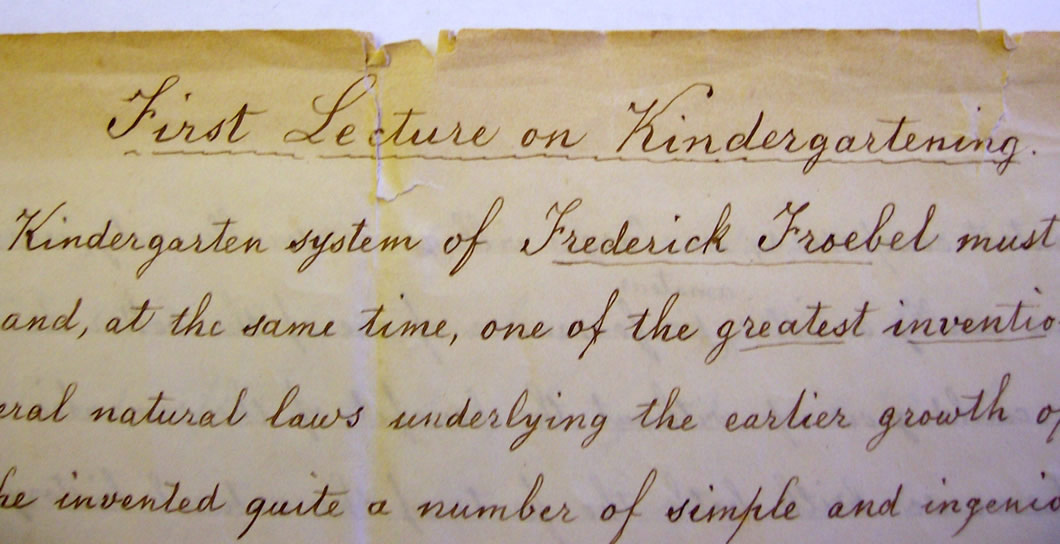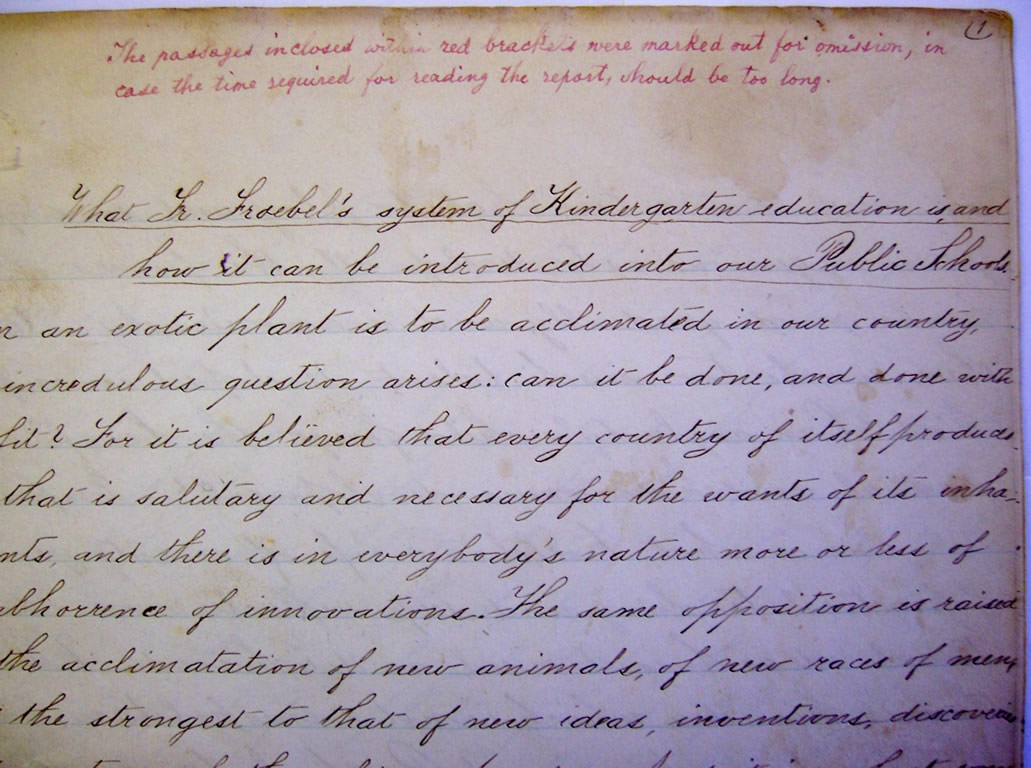Two manuscript reports on the kindergarten system of education as thought by Frederick Fröbel (Mid-19th Century)
These seem to be the manuscripts for lectures on the kindergarten system of Frederick Fröbel. In the first lecture manuscript, it states that there are "twenty lectures," but there are only two lecture manuscripts in this collection. The manuscripts are tattered, but still legible. Both are also still in the form of drafts, with corrections written on them.
First Lecture on Kindergartening
The author of the manuscript refers to the Kindergarten system of Frederick Fröbel as one of the "greatest discoveries" and "greatest inventions." The author believes that Fröbel set out to develop every man into a "true man," and the current educational establishments were not producing "true men." Then, the author goes over a brief biography of Fröbel, who was born in 1782 in a poor region of Germany. Frederick's mother died during child birth, and his stepmother drove him out of his home at fourteen. The author explains that this motivated Fröbel to ensure that all children would have the "happiness of childhood that he had been deprived." The lecture goes on to discuss Fröbel's first educational establishment, which relied on the "family plan" that meant all teachers had to be relatives or close friends. Finally, after years of struggle, he created a Normal College for the education of kindergarteners in 1849 and a Model Kindergarten in 1850. The author then goes over his/her own "laws of mental development." Lastly, the author goes over the important means of a kindergarten education, which included plays, games, gymnastical exercises, songs, and object lessons. Fröbel refers to these as gifts. In reference to mathematics, the author describes many hands-on activities that Fröbel felt were important to incorporate in the kindergarten curriculum. Overall, this lecture is the introductory or overview lecture for following lectures.

What Dr. Froebel's System of Kindergarten Education Is and How It Can Be Introduced into Our Public Schools
This manuscript questions if Fröbel's kindergarten education is really a "cosmopolitan product of nature and mankind" through various criteria. The author begins by questioning and validating its purposes, in which the main purpose is to "to make all children happy." While he/she considers the purpose to be cosmopolitan, or "worldly," he/she believes Fröbel's "means to his end" are less cosmopolitan, which he questions next. Fröbel's means are essentially his "gifts," which are presented in separate boxes by the mothers. The author believes that Fröbel's theory is a great one, but it is not always the best in all situations when put into practice. The author does, however, list a number of conditions that help put the theory into better practice. The author explains that this is "genuine kindergarten," and it is not meant to cause mental strain on the young child, but to instead do the opposite. Then, the author goes into a much more detailed explanation of the "gifts." Finally, he/she ends this lecture by listing the many objections to the kindergarten education in many countries, and next, he/she refutes them.
